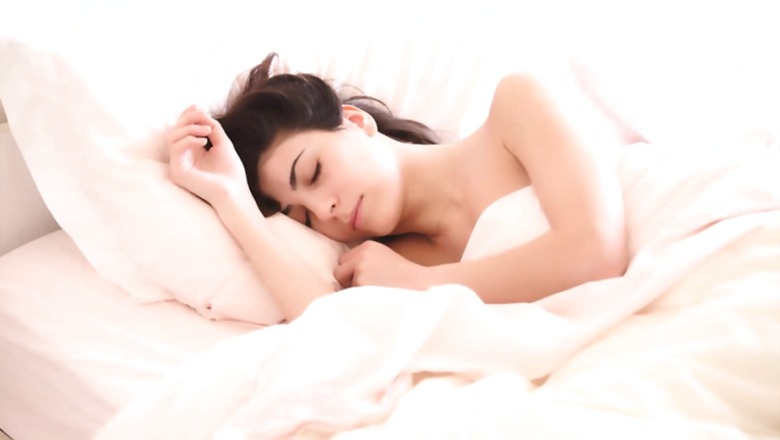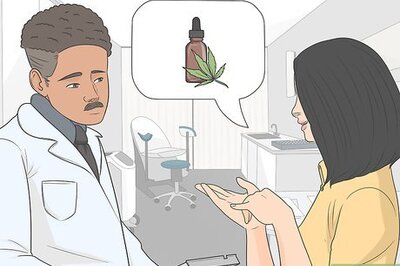
views
If you try hard to sleep every night but are either unable to fall or stay asleep, then you could be suffering from insomnia. Insomnia is a sleeping disorder where the person finds it difficult to sleep.
Insomnia can be of two types: short-term or transient insomnia and chronic insomnia. Short-term insomnia is usually when the person goes through a stressful or traumatic life event such as getting fired from your job, losing a loved one or having an accident.
Chronic insomnia is seen in people who have difficulty falling asleep or maintaining sleep for at least one month. This can be due to many reasons. For example, strenuous exercise, beyond the usual, activates the release of stress hormones such as cortisol and adrenaline which can lead to sleep problems like insomnia. Also, overworked muscles are in the constant state of hyperexcitability which causes sleeplessness.
1. Fix your circadian rhythm
Try to sleep and wake up at the same time every day. In the long term, this would help programme your body to start feeling sleepy and waking up at the same time daily.
2. Meditation improves the sleeping pattern
There have been various studies which state that meditating regularly can help you fall asleep faster and for longer than those who don’t meditate. An article posted in the book Current Opinion in Pulmonary Medicine stated that mindfulness-based therapy for insomnia helps in reducing sleep latency, which is the amount of time we take to fall asleep. Meditation also reduced the total wake time, which is the duration of being awake during your sleep time.
3. Cut off caffeine and alcohol
This is a well-established fact by now ? caffeine present in tea and coffee keeps you awake and its effects can last for several hours. Caffeine not only causes difficulty in falling asleep but also causes frequent awakenings in the middle of your sleep.
Many people believe that alcohol has a sedative effect which helps you fall asleep. The truth is that it does make you fall asleep for the first few hours but the continuous use of alcohol leads to you waking up frequently from your sleep and restlessness while you’re sleeping.
4. Massage for a sound sleep
We all know that massages can be extremely relaxing. A Chinese research study stated that massage therapy can benefit people with insomnia as it improves sleep quality and also reduces the feelings of pain, anxiety and depression, which may cause insomnia.
You can either go to a professional or ask your partner, family member or friend to give you a massage before bedtime.
5. Essential oils to fall asleep
Essential oils, especially, lavender oil, can help in elevating mood, reducing pain and promoting sleep. A study published in the journal Complementary Therapies in Medicine in 2014, showed that lavender oil capsules can improve sleep patterns in people with depression when the capsules were used along with an antidepressant. They also reduced the levels of anxiety in people which, in turn, made them sleep better. You can either take the lavender capsules or can add lavender essential oil onto your pillow cover for better sleep. You can also use an oil diffuser to slowly release the fragrance of lavender oil in your room.
For more information, read our article on Insomnia.
Health articles on News18 are written by myUpchar.com, India’s first and biggest resource for verified medical information. At myUpchar, researchers and journalists work with doctors to bring you information on all things health.
















Comments
0 comment